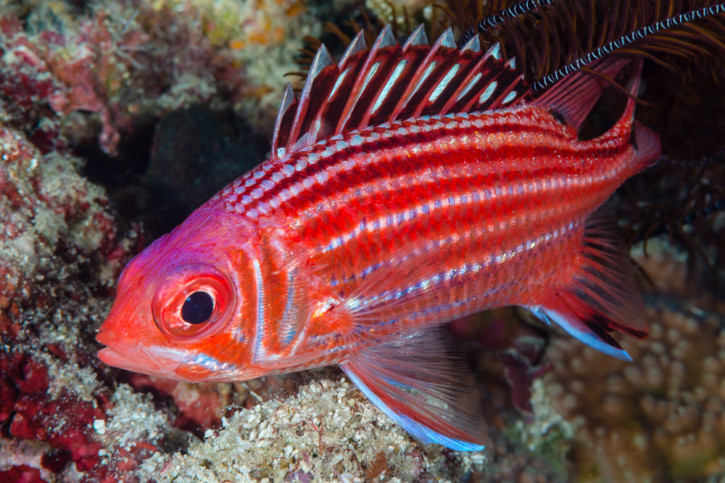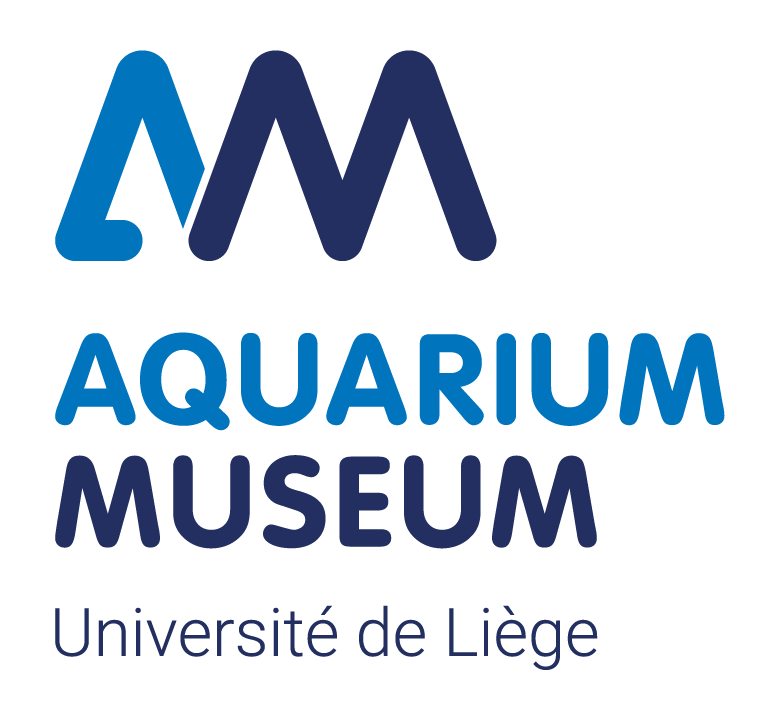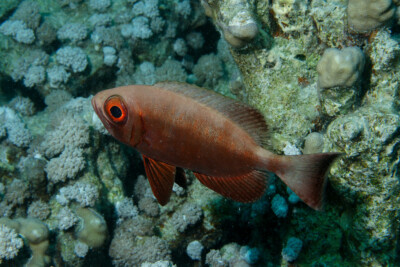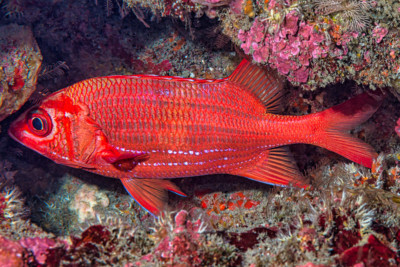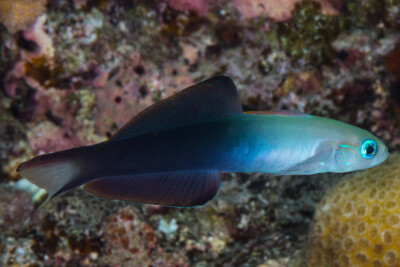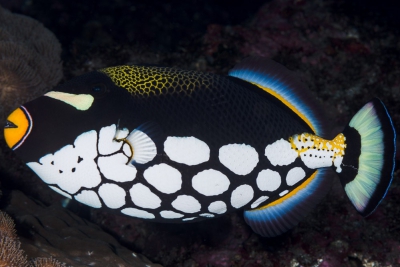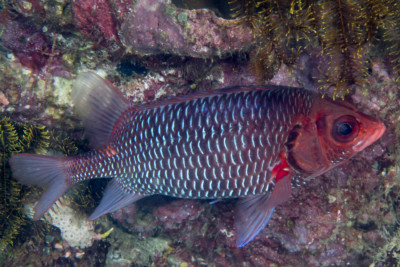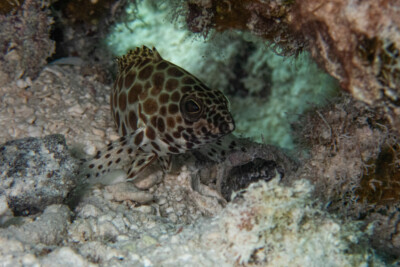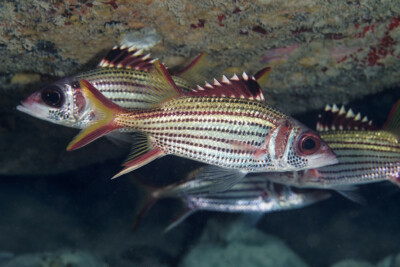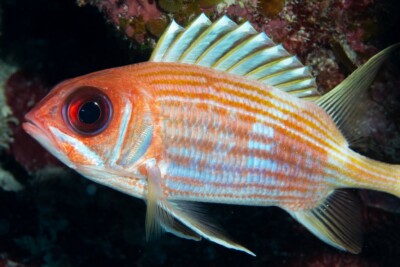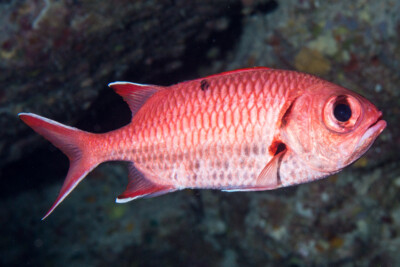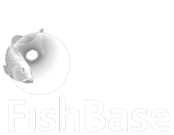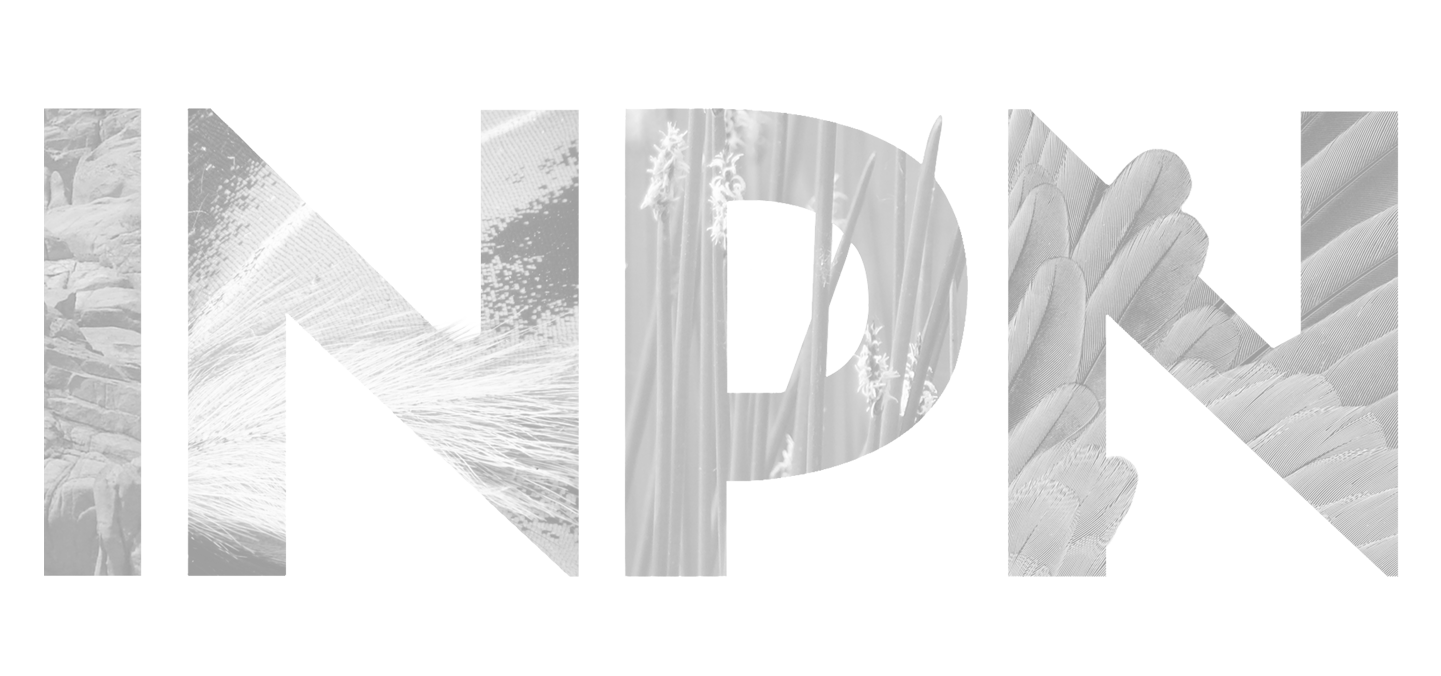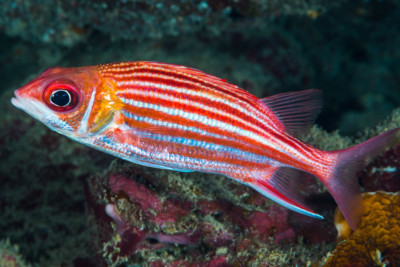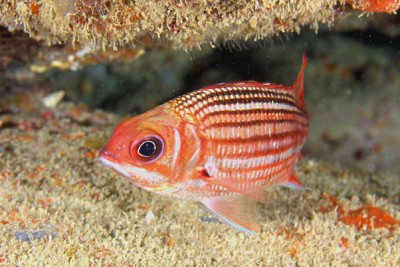threespot squirrelfish
| Family | Holocentridae |
|---|---|
| Genus | Sargocentron |
| IUCN category (World) | LC |
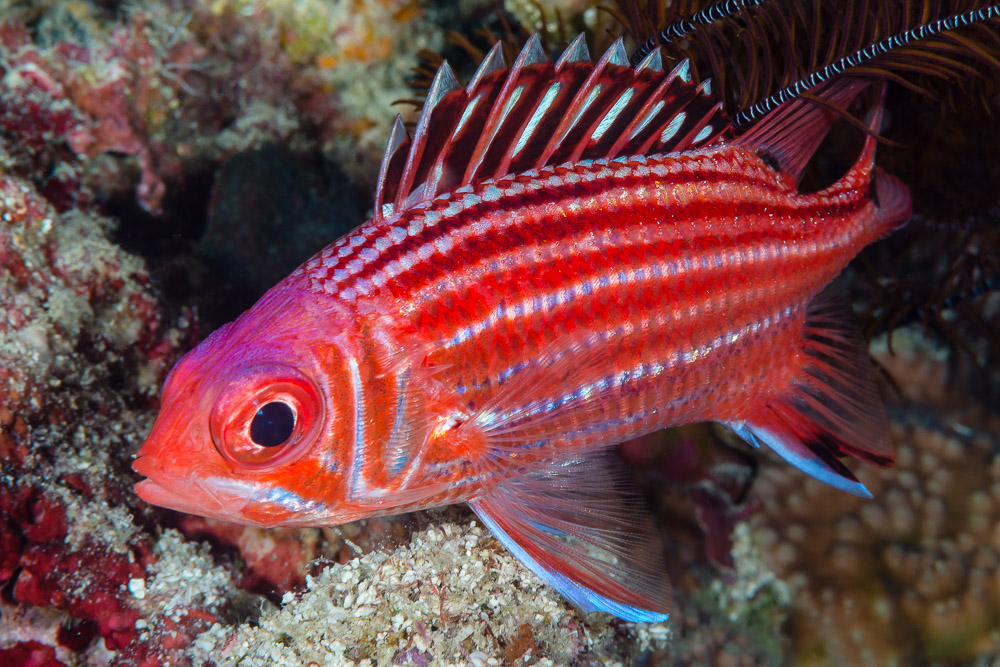

Introduction
Sargocentron cornutum, commonly known as threespot squirrelfish, is a salt water fish.
This sheet is currently being prepared. The texts currently proposed come from our data model or are being drafted. To request priority for this content, you can write to us HERE.
Who is it?
Morphology
-
Average size25 cm
-
Maximum size27 cm
-
Patternhorizontal stripes
-
Average size25 cm
-
Maximum size27 cm
-
Patternhorizontal stripes
How to recognize This fish ?
The threespot squirrelfish measures between 25 and 27 cm. This fish is bicolore with a predominantly rouge and blanc body. The also has blanc horizontal stripes.
Behaviour & Life cycle
-
dietcarnivorous
-
Sociabilityliving in shoals
-
territorialYes
-
Way of livingnocturnal
The threespot squirrelfish is a fish living in shoals naturally found near the rocks. This species is carnivorous . This fish lives mainly at night. Usually, it leaves its hiding place and starts to be active once it gets dark.
This species is territorial and does not appreciate the presence of intruders nearby, especially animals with similar behavior. However, the threespot squirrelfish has little concern for non-territorial animals.
Reproduction
-
Reproductionovipare qui pond en eau libre
The threespot squirrelfish is a fish ovipare qui pond en eau libre.
Risks for humans
-
VenomousYes
This species is venomous and can cause serious injuries when touched.
Origin and distribution
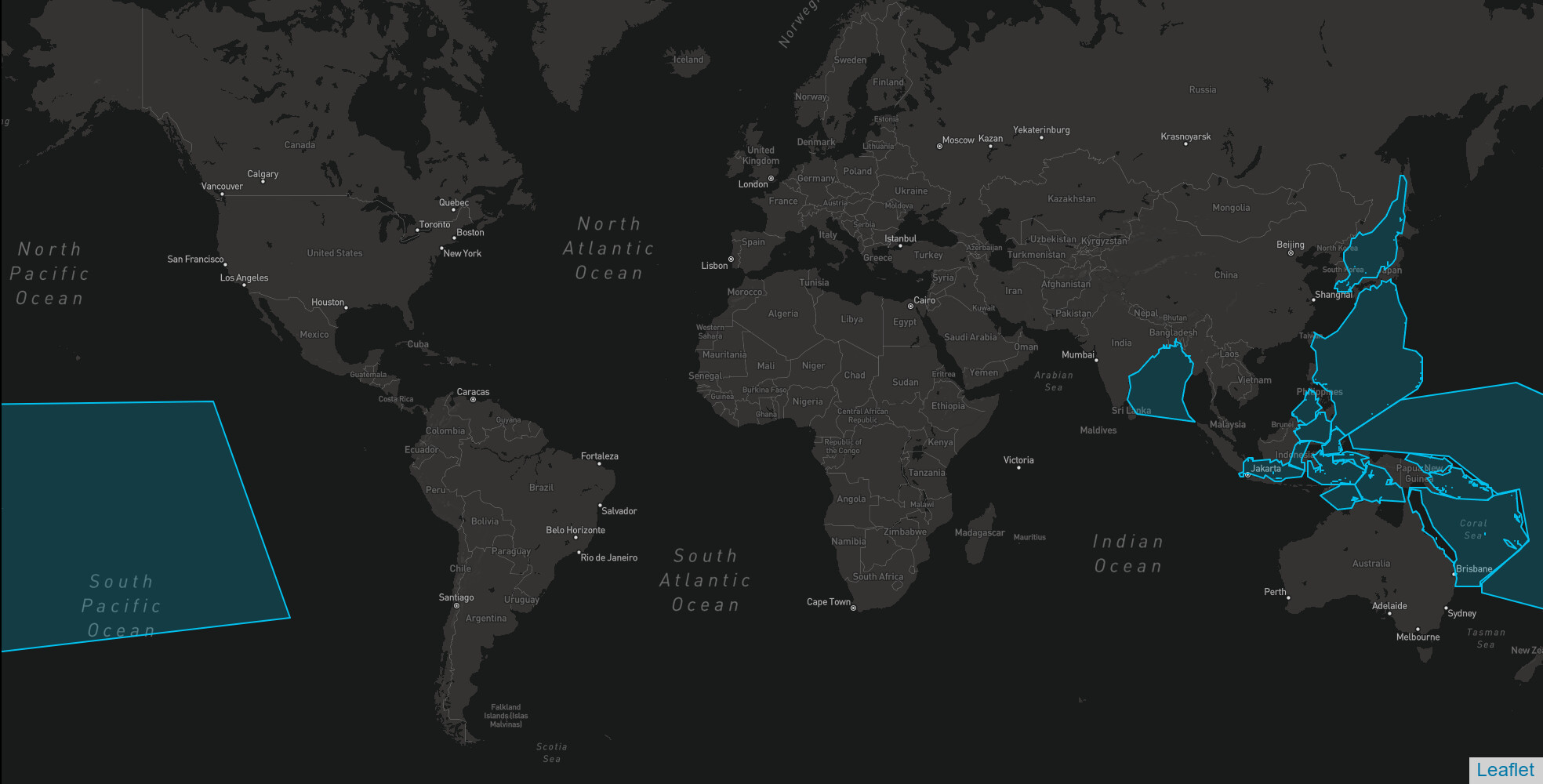
What is its habitat?
Natural environment characteristics
-
Temperature22 - 28 °C
-
Depth6 - 40 m
Biotope presentation
The threespot squirrelfish is most often found at a depth between 6m and 40m. However, it is not impossible to find this species at other depths.
Species of the same biotope
To go further
Sources & Contributions
Participation & Validation
The Fishipedia team and specialist contributors are committed to providing high-quality content. However, although the information comes from scientific sources or testimonials from specialists, the cards may contain inaccuracies.
Translation
Translation done with the valuable contribution of our translators, who make this information available to a wider audience. We sincerely thank them for their commitment.
Scientific partners
Tags
Species of the same family
Same genus
Species of the same biotope
